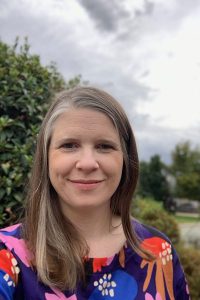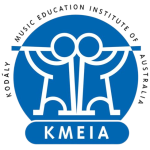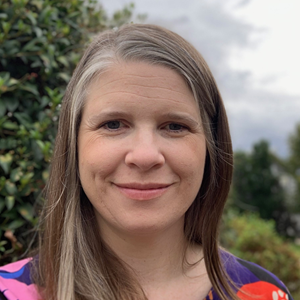 Katherine Smith MMus, BMus (Hons), Grad.Dip.Ed. (UWA), Cert. Dalcroze (DEIEB), Australian Kodály Certificate (KMEIA)
Katherine Smith MMus, BMus (Hons), Grad.Dip.Ed. (UWA), Cert. Dalcroze (DEIEB), Australian Kodály Certificate (KMEIA)
Katherine Smith holds a Master of Music in Performance from the School of Music at the University of Western Australia, the Dalcroze Certificate (DEIEB) and the Australian Kodály Certificate (Primary). Katherine is the Music specialist at Riva Primary, a public Inclusive Education school in Perth. Here she teaches music to children in Pre Primary to Year 6 from diverse cultural backgrounds and with a range of special education needs in a one-school, fully inclusive model. Katherine has also worked for the WA Instrumental Music Schools Service, in early childhood music settings including the University of Western Australia Junior Music School, as a sessional academic in Music Education for Edith Cowan University, and as freelance orchestral and chamber music clarinettist, performing with the West Australian Symphony Orchestra and other ensembles in Perth. She is the immediate past national president of Dalcroze Australia. Katherine is passionate about movement and singing in primary school, the role of embodied learning in music education, and inclusive practice.
Day 1
| Time | Title |
|---|---|
| Session 4: 14.00 | Kodaly through Dalcroze eyes: embodied learning opens doors. |
| Students who are neurodiverse, have sensory needs, fine motor difficulties or language delays and disorders sometimes struggle to engage with a primarily vocal music program. Such students may not be able to access activities or demonstrate knowledge through chanting, singing and writing if expressive language and fine motors skills are already a challenge. Musical movement, being non-verbal and beginning with gross motor skills, is not only a powerful tool to engage students with special needs, but a valuable resource when teaching all abilities. This session looks at the ways a Dalcroze-inspired understanding of embodied musical learning can value-add to a vocal-based program. The Dalcroze approach uses whole-body movement to explore concepts and assess understanding through games and musical play. We will look at ways to support the learning of rhythmic, melodic and expressive concepts through movement with the aim of making learning accessible for all. This interactive session draws on the presenter’s experience teaching children with special needs alongside students without special needs in a “one school” Inclusive model, in which she combines her Kodaly and Dalcroze Certificate knowledge in a singing and movement based primary school music program. | |
Day 2
| Time | Title |
|---|---|
| Session 5: 15.05 | All Means All: the Inclusive Music Room |
| What is Inclusive Education and why is it important? What does inclusion look, sound and feel like in the Music room? This interactive session explores the barriers to accessing Music education faced by children with disabilities and those from diverse cultural and socio-economic backgrounds, and introduces the Universal Design for Learning (UDL) framework. UDL is a well-established approach to teaching that guides the development of programs, assessments and lessons that are accessible by all students, including those with disabilities. Through the lens of UDL we will explore practical steps we can take to craft an attitude, teaching space and program that makes Music accessible to all students regardless of their backgrounds and their physical, neurological, behavioural and social-emotional abilities. This session draws on the presenter’s experience teaching children with special needs alongside students without special needs at an Inclusive Education primary school. | |

